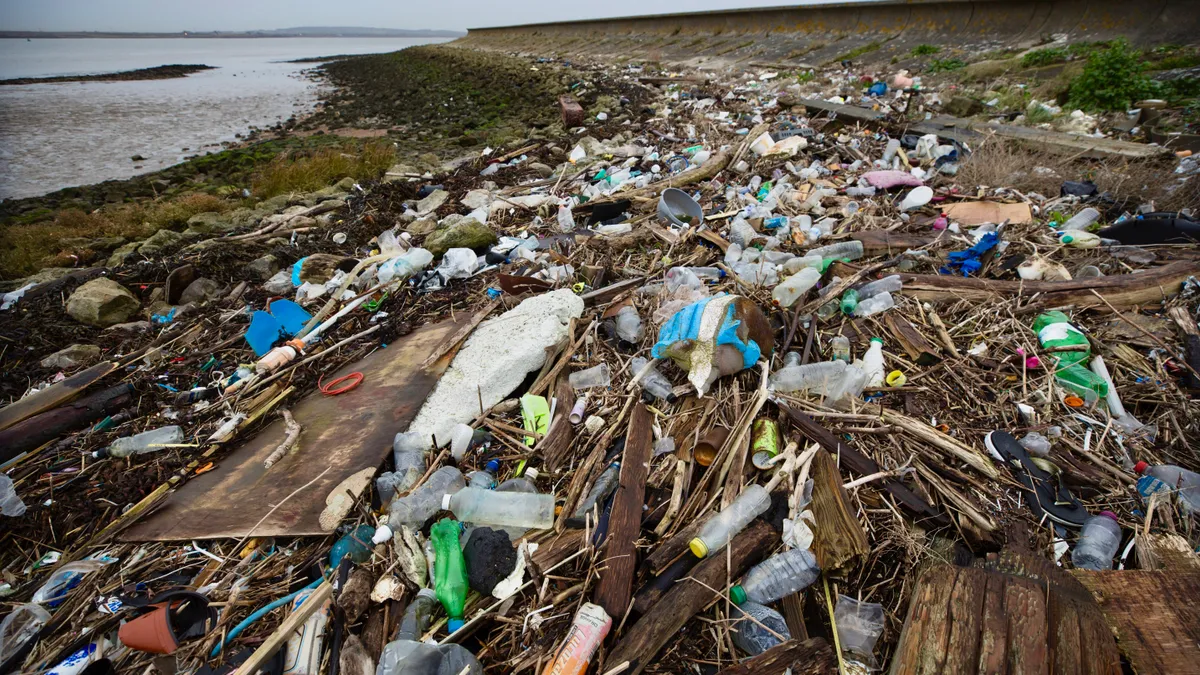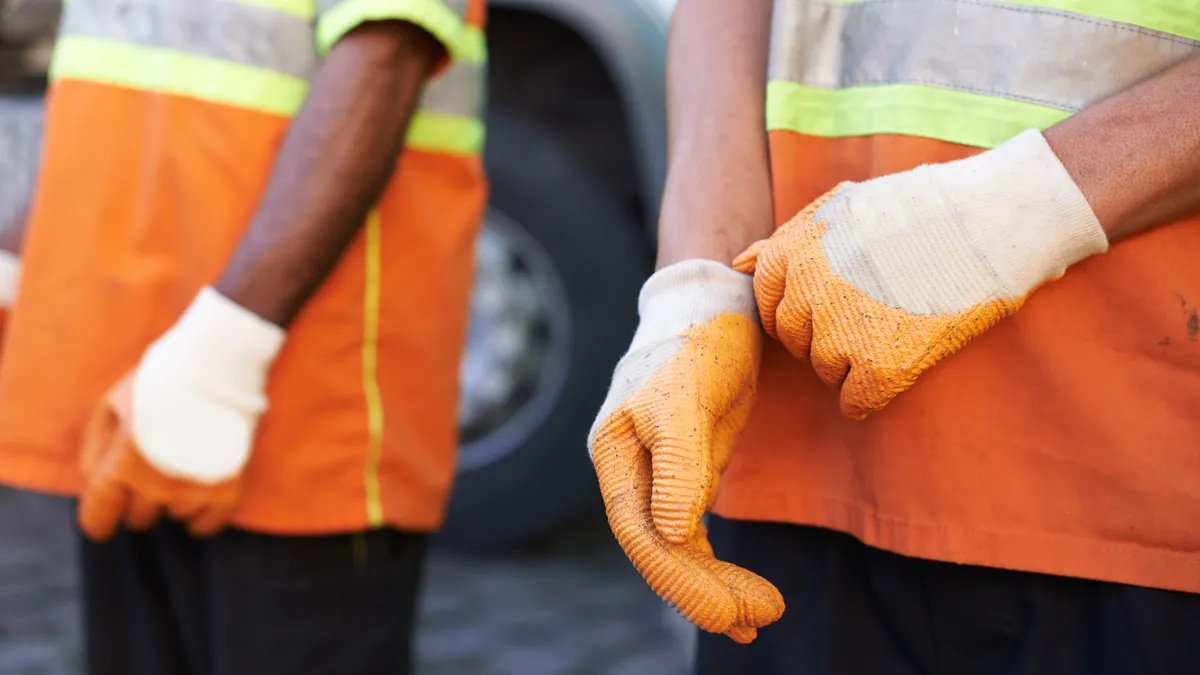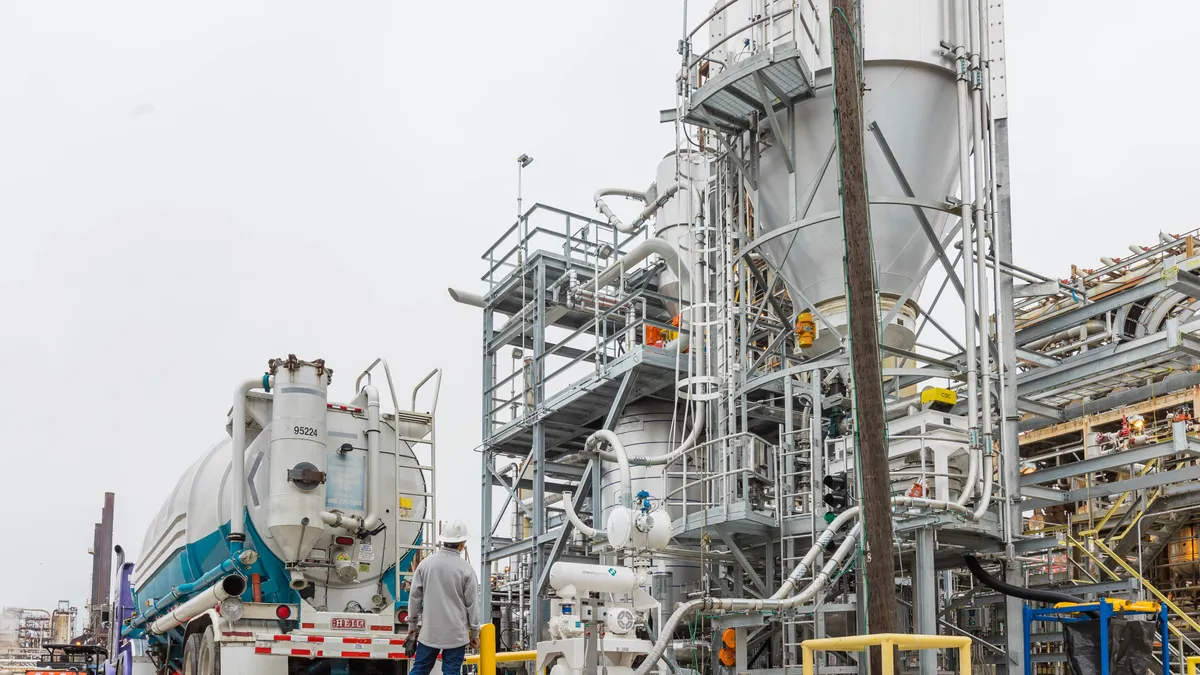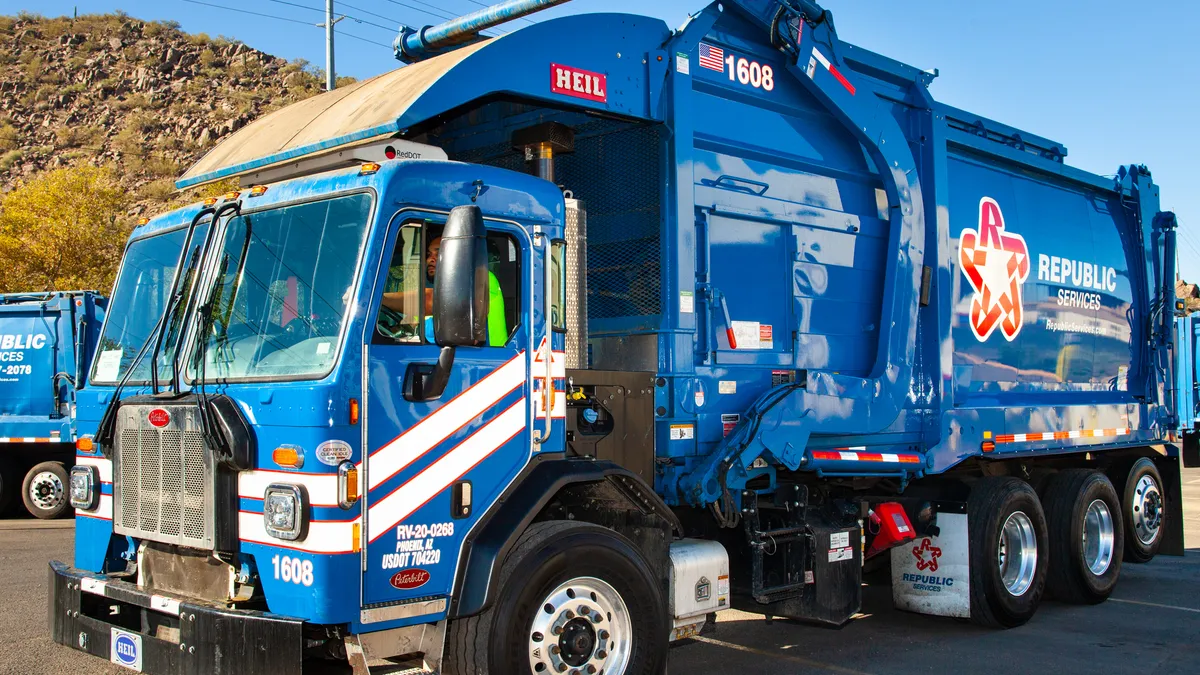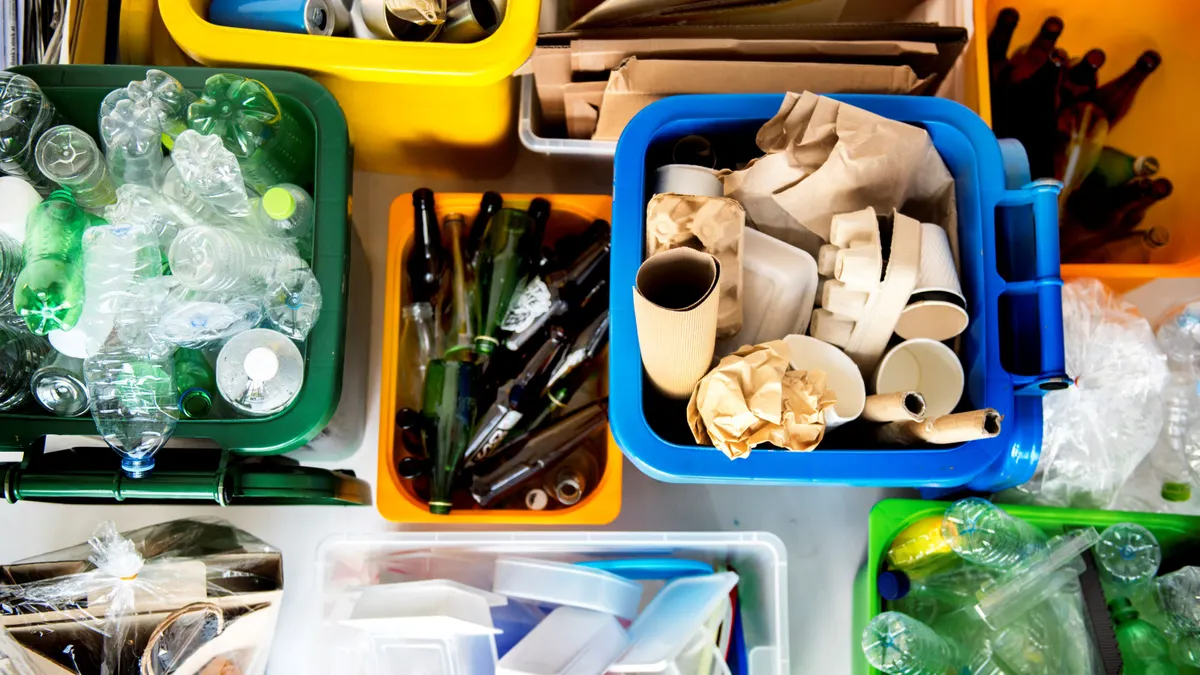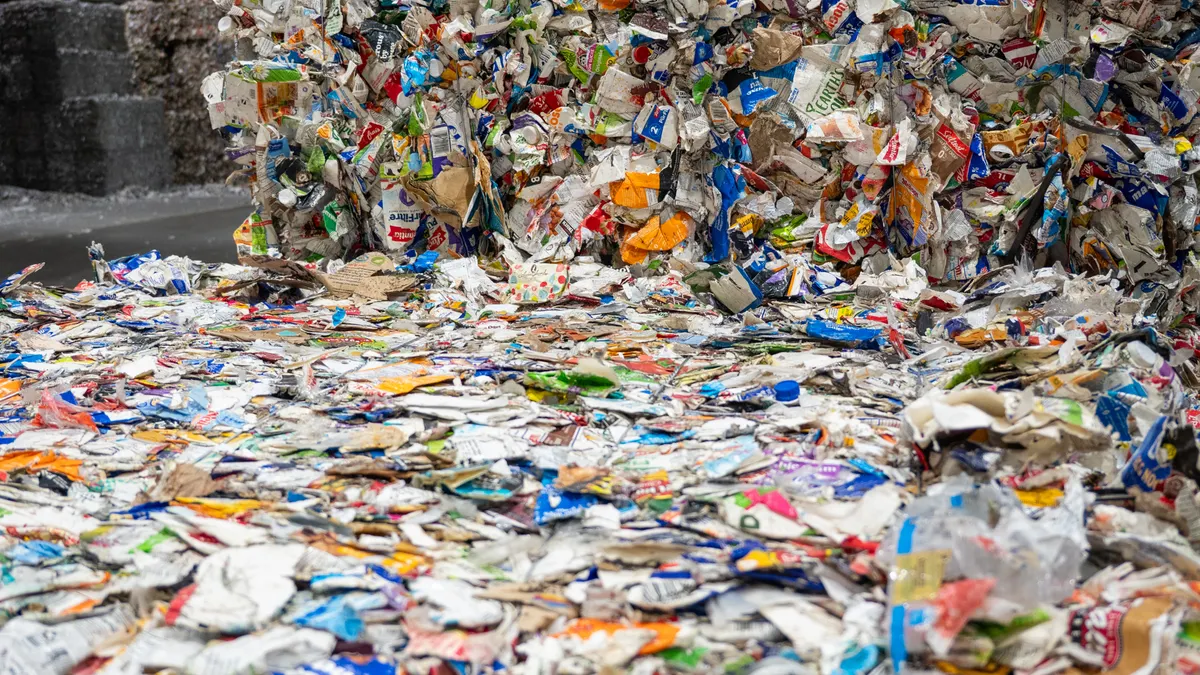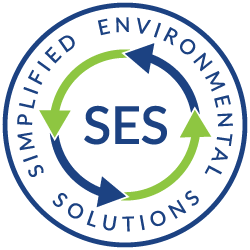Negotiators working on a global agreement meant to end plastic pollution failed to reach consensus in Geneva last week, leaving the waste and recycling industries disappointed that longtime negotiations have yet to resolve.
Industry stakeholders have been watching and participating in the plastic treaty negotiations since they first started in 2022. A final treaty could have important implications for recycling supply chains, end markets, business innovations and brands’ voluntary plastic reduction commitments, stakeholders said.
Overarching tensions in Geneva included disagreements about whether to place production limits on plastics, and how to bolster recycling infrastructure in addition to, or instead of, such limits, Plastics News reported. Other discussions grappled with how to manage certain chemicals in plastics and how to protect frontline communities that are disproportionately affected by plastic pollution.
INC-5.2, the Geneva negotiations held Aug. 5-15, continued the long-term discussion between global governments and stakeholders that has played out over the course of five international meetings during the last three years. The original goal was to agree on an international, legally binding agreement by the end of 2024.
The United Nations’ Intergovernmental Negotiating Committee has agreed to resume negotiations “at a future date.”
“We are disappointed that the negotiations did not reach a final agreement, but remain hopeful that the conversation is not over,” said Amy Lestition Burke, CEO of the Solid Waste Association of North America, in an emailed statement.
Recycling industry sees multiple avenues for treaty progress
Some conversations in Geneva centered on “support for improved collection and processing infrastructure for plastics,” as well as how to increase recycled content in products, said Kristyn Oldendorf, SWANA’s senior director of public policy and communications, who attended the negotiations. “These conversations will likely continue to evolve as negotiators and stakeholders think about next steps.”
SWANA noted “encouraging” aspects of the Aug. 15 draft of the treaty chair’s proposal that could also support some waste and recycling initiatives. The draft called for developing plastic waste management policies and economic strategies that are “environmentally sound,” as well as for improving packaging design, setting specific collection and recycling targets and making data collection more transparent.
Recycling equipment operators also weighed in on the treaty’s progress, noting that their international operations and discussions during the Geneva talks have given them perspective on how countries can work together to curb plastic pollution.
Rish Mitra, founder of AI-enabled sorting equipment company Greyparrot, advocates for a treaty that includes caps on plastic production. The company operates in more than 20 countries, including the U.S.
“No one with any serious knowledge of or experience in the waste industry believes that recycling alone can tackle our huge plastic pollution problem,” he said in a statement. “Tackling any form of pollution requires upstream management at the source, not just downstream mitigation.”
Tove Andersen, president and CEO of sortation equipment company Tomra, expressed “regret” that the treaty wasn’t finalized, and urged negotiators to adopt policies that acknowledge interconnectedness of global supply chains for plastics. “The value chains for production, consumption and handling of plastics after use are international in nature, and a global treaty would be the absolute best way to tackle the massive challenges to nature, health and the climate that unregulated use of plastic represents.”
Meanwhile, brands like PepsiCo called for “harmonized” progress on other country-specific recycling efforts to work alongside an eventual global treaty. For example, “well-designed [extended producer responsibility] programs can help close the recycling infrastructure gap, but not enough effective programs exist. Global principles can pave the way for accelerated action at the national level,” said Anke Boykin, PepsiCo’s senior director of global environmental policy, in a statement.
Plastic makers prefer national recycling efforts over production caps
Plastics industry groups that attended the negotiations have spoken out against proposals to limit plastic production, saying such restrictions could have “unintended consequences” for the economy or for key industries like medical supply chains.
Global Partners For Plastics Circularity, a group of major global plastics makers and associations, has instead pushed for policies that can be developed on a nation-by-nation basis. The group encourages “continued investment in recycling innovations and projects by the private sector” instead of plastic production caps.
The group sees the treaty as a way to “create the right demand signals to the private sector to spur investment in collection, sortation and recycling” and calls for implementing aspects like recycling rate targets or recycled content requirements for brand packaging.
American Chemistry Council CEO Chris Jahn applauded the U.S.’ role in the Geneva negotiations, saying an ideal agreement “will help unleash American innovation to solve this global challenge.”
ACC said U.S. plastic makers are committed to “designing products for reuse and recycling, collecting and sorting them at end of life, and remaking them into new products. A global agreement to end plastic pollution will help drive investment in innovation and infrastructure in the U.S. and worldwide.”
Environmental groups call for stronger restrictions on plastics
Environmental groups expressed frustration that the latest draft did not make stronger calls for plastic production caps or restrictions on certain chemicals used in plastics manufacturing.
The Plastic Pollution Coalition said it was pleased to see some countries reject a “weak” draft without such restrictions. The Global Alliance for Incinerator Alternatives criticized event organizers for prioritizing plastic groups’ perspectives over those of communities who are most impacted by pollution.
“For years, the Global South has been the driving force behind the most ambitious proposals, but the consensus paralysis has prevented us from delivering the treaty the world urgently needs,” said Eskedar Awgichew Ergete of Eco-Justice Ethiopia, in a statement from GAIA.
The Ocean Conservancy has called for future drafts to include more specific plastics reduction measures, as well as “adequate financing” to carry out a treaty and requirements that countries follow final treaty provisions.
“Overall, this updated treaty draft appears to focus on managing plastic waste, not ending plastic pollution – which is its original mandate. So, if the text were left as is, it would be a failed treaty,” said Nicholas Mallos, vice president of conservation for the Ocean Conservancy’s ocean plastics program.



